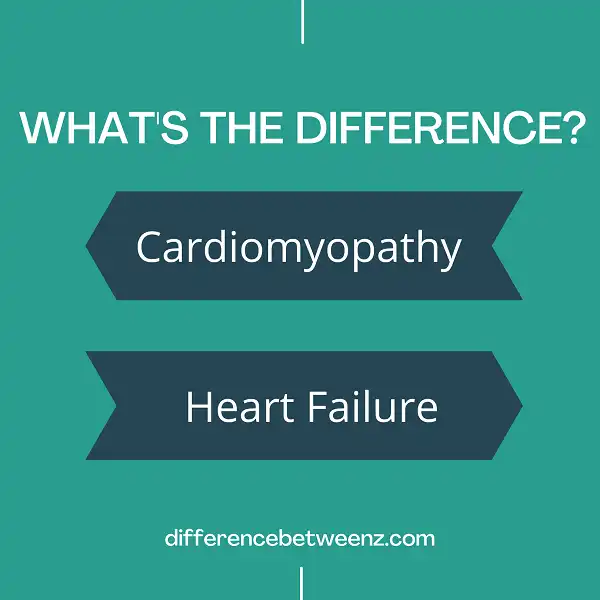There are many different types of heart disease, affecting the heart in different ways. Two of the most common forms of heart disease are cardiomyopathy and heart failure. While there are some similarities between these two conditions, there are also some important differences. In this blog post, we will look at the key differences between cardiomyopathy and heart failure.
What is Cardiomyopathy?
Cardiomyopathy is a disease of the heart muscle. It can lead to the heart becoming weak and enlarged, and it can also make it difficult for the heart to pump blood efficiently. There are several different types of cardiomyopathy, and the precise cause of the disease is often unknown. However, it is thought to be caused by a combination of factors, including genetic predisposition, viral infections, and uncontrolled stress. Cardiomyopathy can be fatal if it is not treated promptly, but with early diagnosis and treatment, many people with the condition can live long and healthy lives.
What is Heart Failure?
Heart failure is a condition in which the heart is unable to pump blood effectively. This can be due to a number of factors, including damage to the heart muscle, problems with the valves that regulate blood flow, or a buildup of fluid in the lungs and other tissues. Heart failure can lead to a number of serious complications, such as difficulty breathing, fluid buildup in the legs and abdomen, and an increased risk of heart attack and stroke. In many cases, heart failure can be managed effectively with medication and lifestyle changes. However, in some cases, heart failure may progress to a point where a heart transplant is necessary.
Difference between Cardiomyopathy and Heart Failure
While cardiomyopathy and heart failure may seem like similar conditions, there are actually several key differences between the two. Cardiomyopathy is a disease of the heart muscle itself, while heart failure is a condition that occurs when the heart is unable to pump blood effectively. Cardiomyopathy can be caused by a number of different factors, including viral infections, genetic disorders, and excessive alcohol consumption. Heart failure, on the other hand, is often caused by high blood pressure or coronary artery disease. Additionally, cardiomyopathy typically leads to heart failure, but the reverse is not always true. Treatment for cardiomyopathy often includes medications to control heart rate and blood pressure, as well as lifestyle changes such as quitting smoking and eating a healthy diet. Heart failure is typically treated with diuretics and ACE inhibitors to help reduce fluid buildup and improve blood flow. In some cases, a pacemaker or defibrillator may also be necessary. Though both conditions can be serious, understanding the difference between cardiomyopathy and heart failure is essential for receiving the proper treatment.
Conclusion
Although cardiomyopathy and heart failure are related, it is important to understand the key differences between the two conditions. Cardiomyopathy can often be treated through medication and lifestyle changes, while heart failure may require surgery or other treatments. If you have any questions about cardiomyopathy or heart failure, please consult your doctor.


